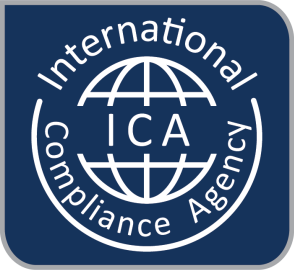


The Umbrella Services Market
Understanding the challenges and opportunities in the UK umbrella company sector
What Is an Umbrella Company?
An Umbrella Companies essentially employ Agency or Freelance Workers on behalf of Recruitment Agencies or end clients.
The umbrella:
This model simplifies Compliance for Recruitment Agencies and Clients by shifting worker management to a Third-Party Specialist.

Stand out from your Competitors - with your Compliance Passport Certification
Market Size & Reach
Sectors served:
Growth drivers:
Market Challenges
There are various crucial market challenges which specifically face the Umbrella Services Market which makes independent Compliance and Certification to a comprehensive Compliance Standard such as the CPS Standard a necessity to ensure confidence, consistency and adherence to legislation and best-practice within the marketplace.
Government Developments
Types of Umbrella Companies
The general types of Umbrella Companies within the marketplace are listed below:
| Type | Description |
|---|---|
| Fully Compliant | PAYE, Contracts of Employment, Full Transparency |
| Margin-Driven | Low Fees, Riskier Practices, Hidden Deductions |
| Disguised Remuneration | Operate Schemes to Reduce Tax Liability (ILLEGAL) |
| Mini Umbrellas | Split Companies to Avoid Tax Thresholds (FRAUDULENT) |
⚠️ It is important to note, the Disguised Remuneration and Mini-Umbrellas are both Illegal and Fraudulent.
Risks to Workers & Clients
Within an unregulated market, both Workers and Clients face significant risks without the assurance of professional, certified compliance standards.
Key Risks Include:
- Unpaid or Miscalculated Holiday Pay: Workers may not receive their full statutory entitlements.
- Undisclosed Deductions: Deductions for “extras” or fees not clearly communicated to workers.
- Lack of Grievance or Complaints Channels: Workers struggle to resolve disputes or raise concerns.
- No Real Employment Protections: Absence of genuine employment rights and support.
- Risk of HMRC Retrospective Enforcement: Exposure to liabilities such as the Loan Charge due to non-compliance.
Professional, certified compliance standards are essential to protect all parties and ensure fair, transparent, and lawful practices.
The Future: Compliance and Certification
The necessity and requirement for independent trusted Compliance Certification has never been greater.
There is a rising demand for:
The market is shifting away from "wild west" models towards professionalization, regulation, and trust-based branding.
